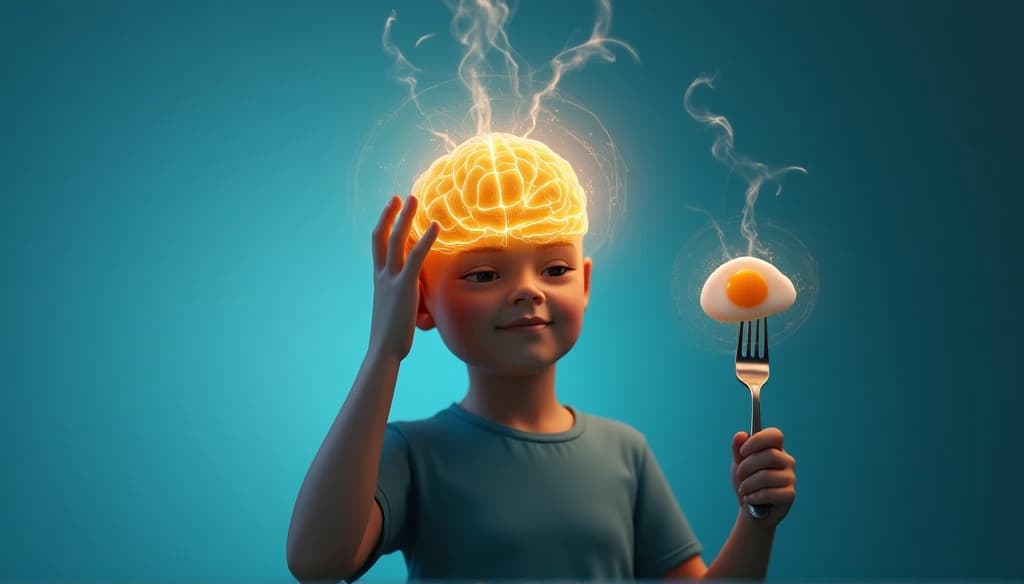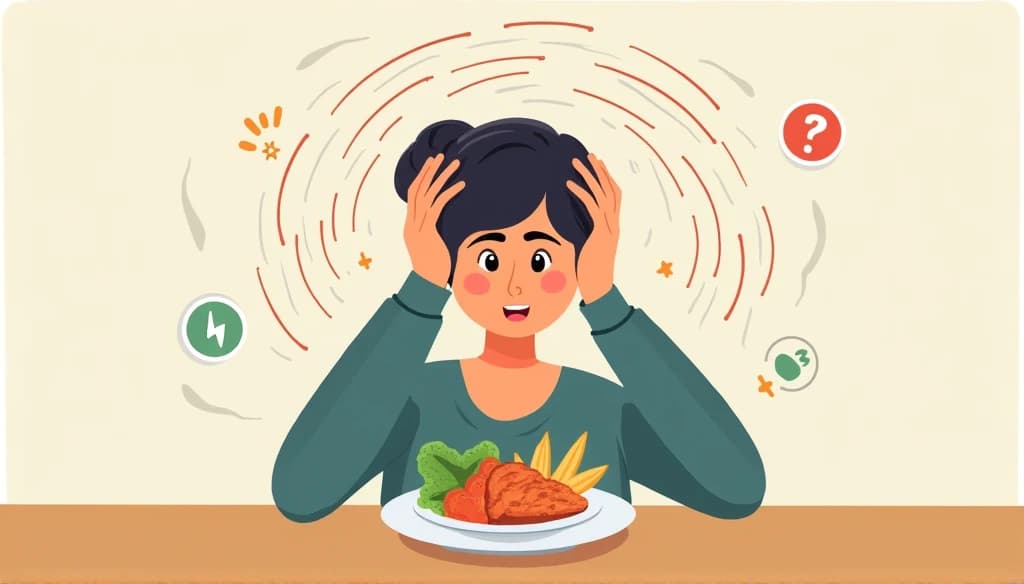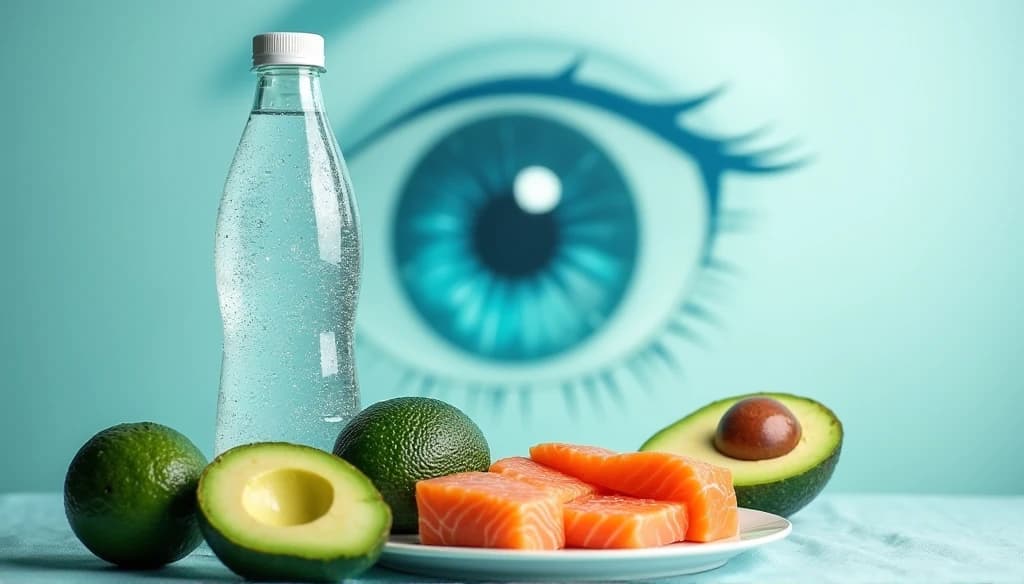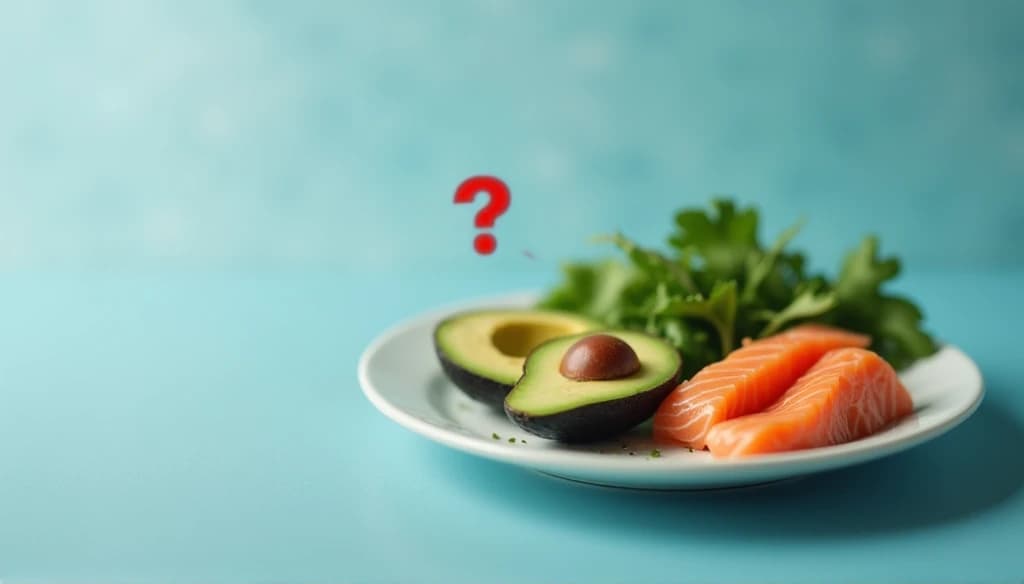Table of Contents
ToggleThat first bite of a satisfying keto meal hits the spot, but then… your vision starts to swim. The words on the screen become a blur, and a wave of dizziness might even wash over you. If this sounds familiar, you’re not alone. Many people embarking on the ketogenic diet experience unexpected side effects like keto diet blurry vision after eating. It can be alarming and leave you wondering, “Is this normal? Is the keto diet harming my eyes?”
This article delves deep into the connection between the keto diet and blurry vision, exploring the potential causes, offering practical Keto blurry vision fix strategies, and addressing concerns like Keto diet and eye pressure. We’ll also tackle the question, “Why do I feel dizzy after eating on keto diet?” providing you with the latest information in simple terms to navigate these challenges and ensure a smoother keto journey.
Unraveling the Mystery: Why Keto Can Affect Your Vision

The ketogenic diet, characterized by its high fat, very low carbohydrate, and moderate protein intake, forces your body to switch its primary fuel source from glucose to ketones. This metabolic shift can trigger various physiological changes, some of which can temporarily impact your vision. Understanding these changes is the first step towards finding a solution.
The Prime Suspects: Common Causes of Blurry Vision on Keto
Several factors can contribute to blurry vision after eating on keto. Let’s explore the most common culprits:
Electrolyte Imbalance: The Keto Diet’s Double-Edged Sword
The keto diet’s emphasis on carbohydrate restriction leads to lower insulin levels. This, in turn, causes the kidneys to excrete more sodium and water. Along with sodium, other crucial electrolytes like potassium and magnesium are also often lost. These electrolytes play a vital role in maintaining fluid balance within the body, including the fluids within your eyes.
-
How Electrolyte Imbalance Affects Vision: Dehydration and electrolyte imbalances can disrupt the delicate balance of fluids in the eye, affecting the shape and function of the lens and cornea, leading to blurry vision.
Dehydration: A Common Pitfall in the Early Stages
The initial water loss associated with reduced carbohydrate intake can easily lead to dehydration, especially if fluid intake isn’t actively increased.
-
How Dehydration Affects Vision: Just like electrolyte imbalance, dehydration can impact the fluid balance within the eye, causing dryness and blurry vision.
Blood Sugar Fluctuations: The Transition Period
As your body adapts to using ketones for fuel, you might experience fluctuations in blood sugar levels. While the keto diet aims for stable blood sugar, the initial transition can be a bit bumpy.
-
How Blood Sugar Fluctuations Affect Vision: Both high and low blood sugar levels can temporarily affect the lens of the eye, causing it to swell or shrink, leading to blurry vision. This is particularly noticeable after eating, as blood sugar levels may shift.
Keto Adaptation (The “Keto Flu“): A Temporary Phase
The “keto flu” refers to a collection of flu-like symptoms that can occur in the early days of the keto diet as your body adjusts. These symptoms can include fatigue, headache, nausea, and, yes, blurry vision.
-
How Keto Adaptation Affects Vision: The metabolic changes and hormonal shifts during keto adaptation can temporarily affect various bodily functions, including vision. This is usually a transient phase.
Dietary Changes and Individual Sensitivities
Introducing a significant dietary change like keto can sometimes trigger unexpected reactions. Certain individuals might be more sensitive to these changes.
-
How Dietary Changes Affect Vision: While less common, individual sensitivities to specific foods or the dramatic shift in macronutrient ratios could play a role in temporary vision changes.
Keto Diet and Eye Pressure: Addressing the Concerns

Concerns about Keto diet and eye pressure are often raised by individuals worried about conditions like glaucoma. While the direct link between the keto diet and increased intraocular pressure (IOP) is not definitively established by extensive research, some potential connections warrant consideration:
-
Fluid Shifts: As discussed earlier, the initial diuretic effect of keto can cause fluid shifts throughout the body, potentially impacting the fluid dynamics within the eye.
-
Inflammation: Some theories suggest that certain dietary components or metabolic changes on keto could influence inflammation levels, which might indirectly affect eye pressure in susceptible individuals.
Important Note: If you have pre-existing eye conditions like glaucoma or a family history of it, it’s crucial to discuss starting a keto diet with your ophthalmologist. They can monitor your eye pressure and provide personalized advice.
Why Do I Feel Dizzy After Eating on Keto Diet? Unpacking the Dizziness

The sensation of dizziness after eating on keto often overlaps with the causes of blurry vision. Let’s explore the potential connections:
-
Electrolyte Imbalance and Dehydration: Low sodium and dehydration can lead to a drop in blood pressure, causing lightheadedness and dizziness, especially after eating when blood flow shifts to the digestive system.
-
Blood Sugar Fluctuations: While keto aims for stable blood sugar, the initial adaptation period can involve temporary dips in blood sugar (reactive hypoglycemia), leading to dizziness, weakness, and even shakiness after meals.
-
Postprandial Hypotension: This condition involves a drop in blood pressure after eating. While not exclusive to keto, the dietary changes could exacerbate it in some individuals.
-
Keto Adaptation: The overall metabolic stress and changes during the initial keto phase can contribute to feelings of dizziness and lightheadedness.
Differentiating Between Blurry Vision and Dizziness
While often experienced together, blurry vision and dizziness are distinct symptoms. Blurry vision is a visual disturbance, while dizziness is a feeling of unsteadiness or lightheadedness. Understanding the difference can help pinpoint the underlying cause.
Keto Blurry Vision Fix: Practical Strategies for Clearer Sight

Fortunately, most instances of blurry vision on keto are temporary and manageable. Here are actionable steps you can take:
Prioritize Hydration: Your First Line of Defense
-
Aim for Consistent Water Intake: Drink plenty of water throughout the day, especially during the initial weeks of the diet. Carry a water bottle with you as a reminder.
-
Listen to Your Body’s Thirst Cues: Don’t wait until you’re parched to drink.
Replenish Electrolytes: Crucial for Balance
-
Increase Sodium Intake: Don’t shy away from salting your food adequately. Consider adding a pinch of sea salt to your water or broth.
-
Focus on Potassium-Rich Keto Foods: Include foods like avocados, spinach, mushrooms, and salmon in your diet.
-
Magnesium Matters: Incorporate magnesium-rich foods like dark leafy greens, nuts, and seeds. Consider a magnesium supplement if needed (consult your doctor).
-
Electrolyte Supplements: Consider using electrolyte supplements or sugar-free electrolyte drinks, especially during the initial adaptation phase or after intense exercise.
Gradual Transition: Ease Your Body In
-
Avoid a Sudden Shift: Instead of drastically cutting carbs overnight, gradually reduce your intake over a week or two to allow your body to adapt more smoothly.
Ensure Adequate and Balanced Nutrition
-
Focus on Nutrient-Dense Foods: Prioritize whole, unprocessed keto-friendly foods to ensure you’re getting essential vitamins and minerals.
-
Don’t Restrict Calories Severely: Extreme calorie restriction can exacerbate side effects during keto adaptation.
Monitor Your Blood Sugar (If Applicable)
-
If you have diabetes or suspect blood sugar fluctuations are a trigger: Monitor your blood glucose levels regularly and discuss any concerns with your doctor.
Rest and Allow for Adaptation
-
Be Patient: The “keto flu” and associated symptoms, including blurry vision, are often temporary and tend to subside within a few days or weeks as your body becomes keto-adapted.
-
Get Enough Sleep: Adequate rest supports your body’s adaptation process.
When to Seek Medical Advice
While temporary blurry vision on keto is often benign, certain symptoms warrant a visit to your doctor:
-
Sudden and Severe Vision Changes: If your vision changes drastically or is accompanied by pain, redness, or other concerning symptoms.
-
Persistent Blurry Vision: If blurry vision doesn’t improve after a few weeks or worsens.
-
Other Concerning Symptoms: If blurry vision is accompanied by severe headaches, nausea, vomiting, or confusion.
-
Pre-existing Eye Conditions: If you have glaucoma or other eye conditions, consult your ophthalmologist before and during the keto diet.
A Visual Guide: Comparing Potential Causes of Blurry Vision on Keto
| Cause | Timing Relative to Eating | Other Potential Symptoms | Duration | How to Address |
| Electrolyte Imbalance | Can be before, during, or after | Muscle cramps, fatigue, headache | Can persist if not addressed | Increase electrolyte intake (sodium, potassium, magnesium) |
| Dehydration | Can be before, during, or after | Thirst, dry mouth, dark urine | Can persist if not addressed | Increase water intake |
| Blood Sugar Fluctuations | Often after eating | Dizziness, shakiness, sweating | Usually temporary | Monitor blood sugar, discuss with doctor if needed |
| Keto Adaptation (“Keto Flu”) | Usually in the initial days/weeks | Fatigue, headache, nausea | Days to weeks | Stay hydrated, replenish electrolytes, be patient |
| Individual Sensitivities | Can vary | Digestive issues, skin reactions | Can persist if trigger not identified | Identify and eliminate potential trigger foods |
Putting It All Together: Navigating Blurry Vision and Dizziness on Keto

Experiencing blurry vision or dizziness after eating on the keto diet can be concerning, but understanding the potential causes empowers you to take action. By focusing on hydration, electrolyte balance, and allowing your body time to adapt, you can often alleviate these temporary side effects. Remember to listen to your body and consult with your doctor if your symptoms are severe or persistent. The ketogenic diet can be a powerful tool for health, but navigating its initial stages requires awareness and a proactive approach.
FAQ: Your Burning Questions About Blurry Vision on Keto
Is blurry vision a normal side effect of the keto diet?
Yes, temporary blurry vision can be a normal side effect, especially in the initial stages of the keto diet as your body adapts. It’s often linked to electrolyte imbalances and dehydration.
How long does keto blurry vision usually last?
For most people, blurry vision related to keto is temporary and resolves within a few days to a few weeks as the body adjusts to the new way of eating and electrolyte balance is restored.
What can I drink to help with blurry vision on keto?
Focus on sugar-free electrolyte drinks or simply add a pinch of sea salt to your water. Bone broth is also a good source of electrolytes. Ensure you are drinking enough plain water as well.
Can the keto diet permanently damage my vision?
In most cases, no. The blurry vision experienced on keto is usually temporary. However, if you have pre-existing eye conditions or experience severe or persistent vision changes, consult your doctor to rule out other underlying issues.
When should I be worried about blurry vision on keto?
You should be concerned if the blurry vision is sudden and severe, accompanied by pain or redness in the eyes, doesn’t improve after a few weeks, or is associated with other concerning symptoms like severe headaches or nausea. Consult your doctor in these cases.





